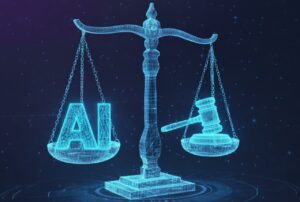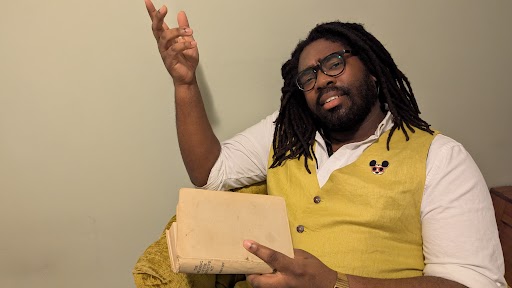
There have been myriad global responses to the intellectual IP scrape and combine known general as AI. Artists of all kinds have called for bans on AI for stealing their work without compensation while industry giants in AI have gone so far as to call for getting rid of IP altogether. Our homegrown response is overwhelmingly on the side of AI — if Peter Thiel and Elon Musk’s close associations with everyone in power isn’t enough, at one point there were murmurs of passing a moratorium preventing ANY regulation of AI for a 10-year period. If that weren’t enough, Sarah Friar soft launching (for Sam Altman to then walk back) the government bailing out OpenAI if they don’t turn a profit makes it seem like America is squarely pro-AI. Despite the general stronghold AI has on the US, there’s been some local pushback when it comes to large language models used for musical purposes. Big names have tried to limit what AI can do, Jay-Z took legal action over AI making use of his musical likeness for example, but the balance still looks to be in AI’s favor: Xania Monet’s recent success as a Billboard-placing “AI musician” and “Walk My Walk” being at the top of the Country charts suggests that consumers think AI music is fair game. It also doesn’t hurt that the usual and popular propaganda venues are pushing for the normality of AI music:
Things have been a little different across the pond. Sir Elton John has been spearheading the artistic push back against the theft required for musical AI to flourish and has asked the government to set limits on how AI can be used musically in order to save the future for artists. And while his focus has been on his government, he has enough sense to know that a fight to prevent AI from replacing musicians has to be a united front: even if the UK comes down strong with laws protecting artist IP, what good does it do if Americans can feed those songs to an LLM and get the same results?

Transform Legal Reasoning Into Business-Ready Results With General AI
Protégé™ General AI is fundamentally changing how legal professionals use AI in their everyday practice.
It looks like Germany is one of the first countries to answer the call. An artist sued OpenAI over the use of their song lyrics and they actually won the case! Reuters has coverage:
OpenAI’s chatbot ChatGPT violated German copyright laws by reproducing lyrics from songs by best-selling musician Herbert Groenemeyer and others, a court ruled on Tuesday, in a closely watched case against the U.S. firm over its use of lyrics to train its language models.
The regional court in Munich found that the company trained its AI on protected content from nine German songs, including Groenemeyer’s hits “Maenner” and “Bochum”.
…
GEMA legal advisor Kai Welp said GEMA hoped discussions could now take place with OpenAI on how copyright holders can be remunerated.
This is a huge outcome for both sides. For European artists, this case could be a template to be compensated when AI infringes on their rights. For OpenAI, it acts as a reminder that there can be consequences for their actions so long as robust IP protects creators. In short, this is the sort of outcome you’d know OpenAI would want to appeal even if they didn’t tell you directly. After a company spokesperson told Reuters that they were considering next steps, they made sure to frame the loss as a limited setback that doesn’t threaten their business model too much. Let’s see how well that characterization ages.
OpenAI Used Song Lyrics In Violation Of Copyright Laws, German Court Says [Reuters]

How LexisNexis State Net Uses Gen AI To Tame Gov’t Data
Its new features transform how you can track and analyze the more than 200,000 bills, regulations, and other measures set to be introduced this year.
Earlier: Elton John Calls Government ‘Losers’ For Letting Tech Firms Skirt Copyright Laws

Chris Williams became a social media manager and assistant editor for Above the Law in June 2021. Prior to joining the staff, he moonlighted as a minor Memelord™ in the Facebook group Law School Memes for Edgy T14s . He endured Missouri long enough to graduate from Washington University in St. Louis School of Law. He is a former boatbuilder who is learning to swim, is interested in critical race theory, philosophy, and humor, and has a love for cycling that occasionally annoys his peers. You can reach him by email at [email protected] and by tweet at @WritesForRent.